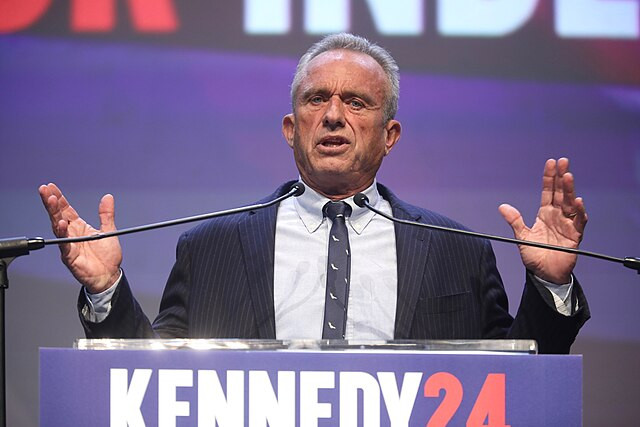Independent presidential candidate Robert F. Kennedy Jr. will not participate in the first presidential debate of the election cycle, hosted by CNN, after failing to meet the network's qualification criteria. The debate, scheduled for June 27 in Atlanta, will feature President Joe Biden and former President Donald Trump in their first in-person confrontation since the 2020 election.
CNN's rules required candidates to achieve at least 15% support in four separate national polls and be on the ballot in enough states to theoretically secure the 270 electoral college votes needed to win the presidency. According to CNN, Kennedy only managed to hit the 15% threshold in three national polls and did not meet the ballot access requirements.
A CNN spokesperson confirmed to Fox News that RFK Jr. did not qualify. "The network's window for candidates to meet the criteria for the June 27 debate in Atlanta closed just after midnight Eastern time, with Biden and Trump meeting the constitutional, ballot qualification, and polling thresholds," CNN reported Thursday morning.
Kennedy has criticized CNN's standards, arguing that the requirements were arbitrarily enforced to maintain a one-on-one debate format between Biden and Trump. His campaign has alleged that the rules are designed to exclude him and other political outsiders. Last month, Kennedy's campaign filed a Federal Election Commission complaint against CNN and both major party campaigns, claiming that the debate setup was illegal.
"President Trump said repeatedly he had no problem debating RFK Jr. and he believes any candidate who qualifies for the ballot should be allowed to make their case to America's voters," Trump campaign national press secretary Karoline Leavitt said. "It's Joe Biden and the Democrats who are using financial and legal resources to prevent RFK's access to the ballot because they know RFK Jr. is a radical leftist who pulls more votes from Biden than President Trump."
The 90-minute debate, moderated by CNN's Jake Tapper and Dana Bash, will be tightly regulated. Candidates' podium positions will be determined by a coin flip, their microphones will be muted outside of speaking time, and they will only be allowed to bring a pen, notepad, and bottle of water. Props and prepared notes are prohibited, and there will be two commercial breaks during which candidates cannot consult with campaign staff.
Kennedy's absence from the stage is a significant setback for his campaign. His failure to meet the debate criteria highlights the challenges faced by third-party and independent candidates in achieving the necessary visibility and support to compete with the established political parties. Currently, Kennedy is on the ballot in 10 states, with his campaign still seeking verification or in the application process in several others, according to an NBC News analysis.
Despite the setback, Kennedy's campaign is using his exclusion to bolster his outsider narrative, booking $100,000 in TV ads on the day of the debate to argue that the election system is rigged against non-establishment candidates. Kennedy's campaign press secretary Stefanie Spear mentioned that they are "considering" further legal action ahead of the debate night.
Looking ahead, Kennedy still has a chance to qualify for the next debate on September 10, hosted by ABC News, which has the same criteria as CNN's. This gives him additional time to secure ballot access in more states and potentially meet the polling thresholds required for participation.






